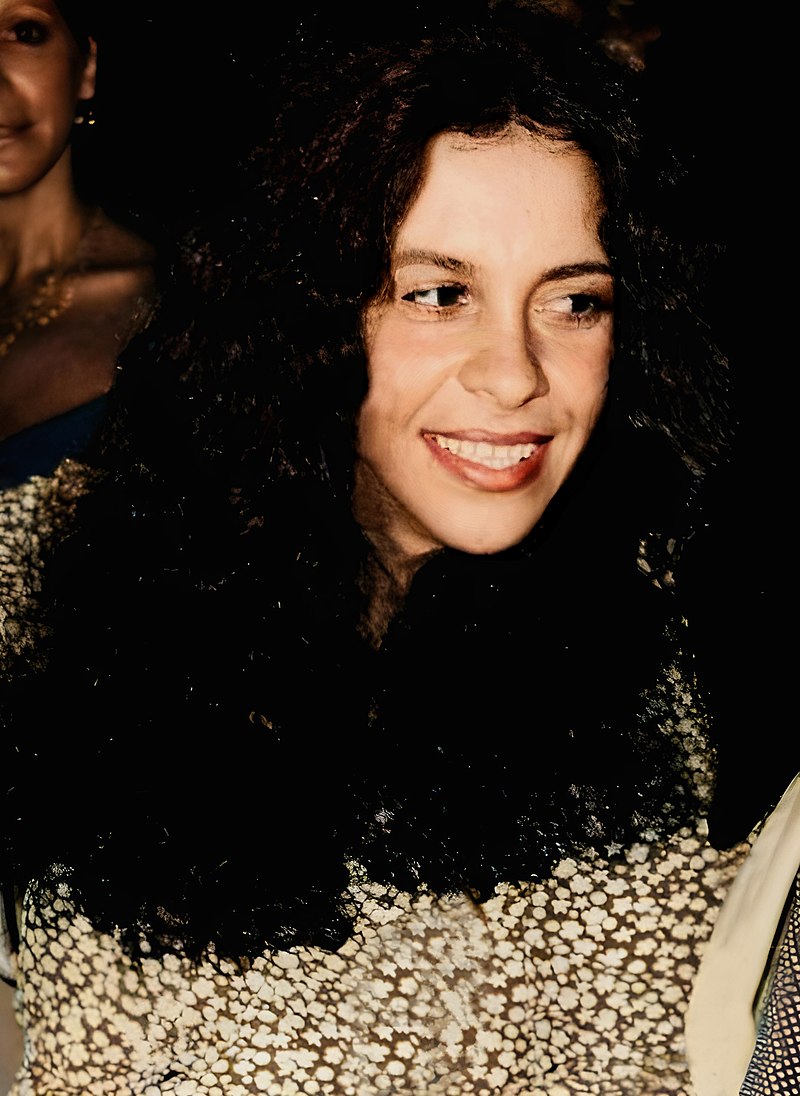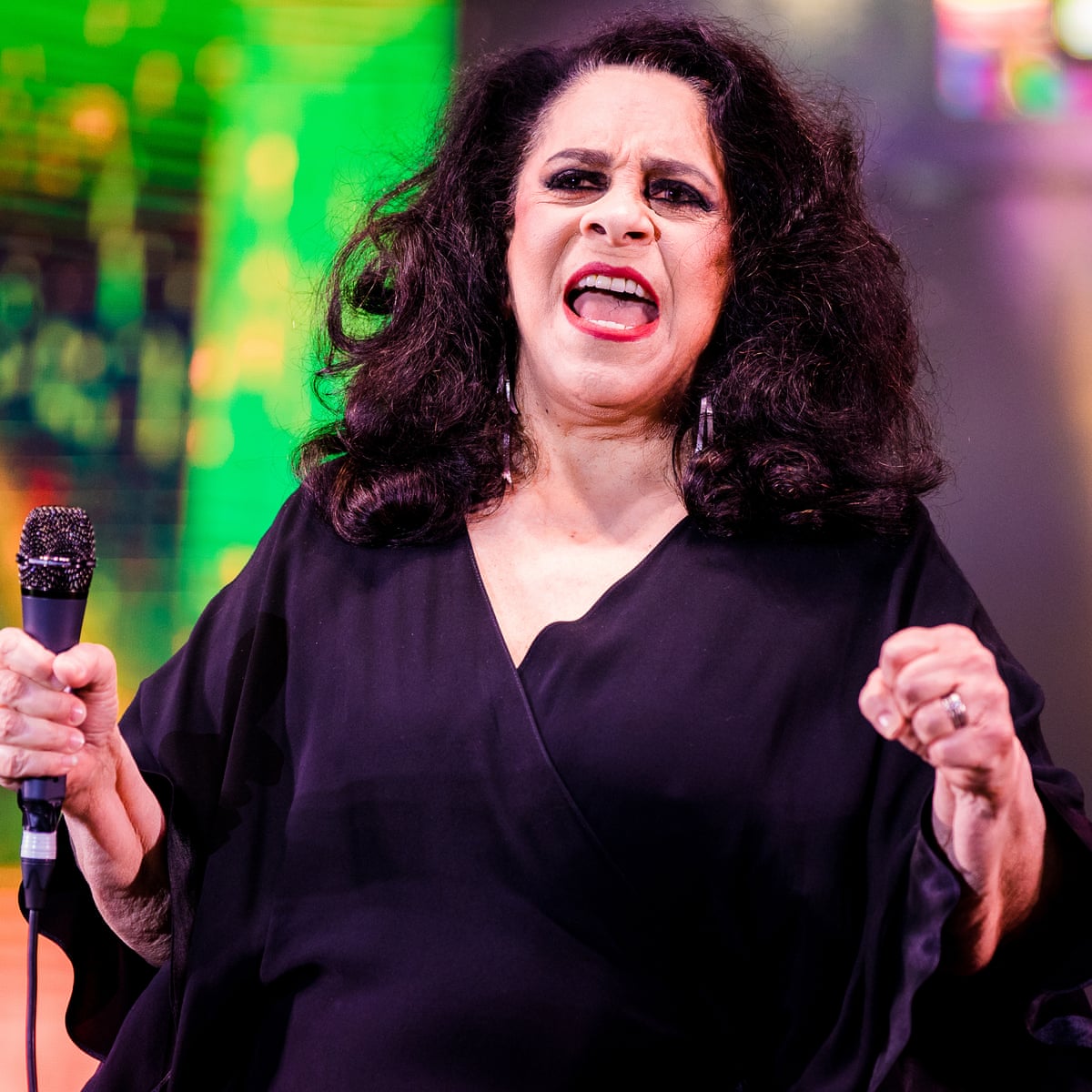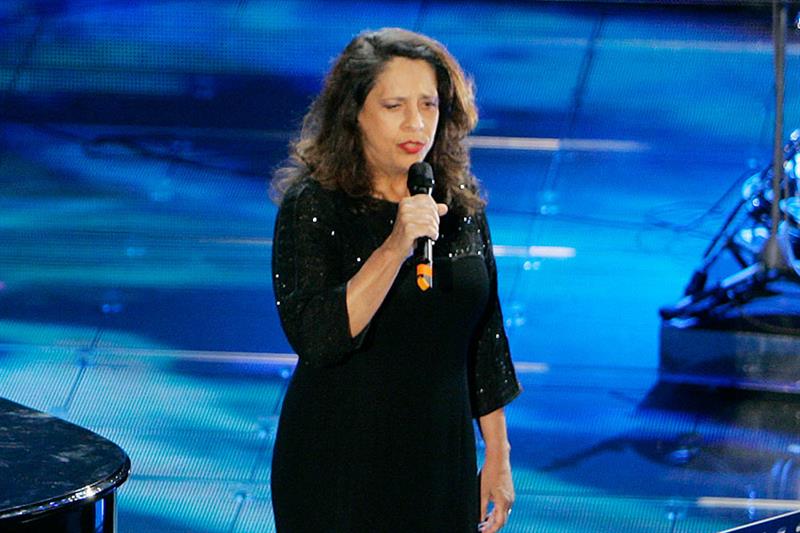Gal Costa
Gal Costa

Gal Costa, born Maria da Graça Costa Penna Burgos on September 26, 1945, and passed away on November 9, 2022, was a renowned Brazilian singer known for her contributions to popular music. She emerged as a prominent figure in the tropicalia music movement in Brazil during the late 1960s, leaving an indelible mark on the country's musical landscape.
Gal Costa's significance in Brazilian music was underscored by her participation in the seminal compilation album "Tropicália: ou Panis et Circencis" in 1968. This album, often regarded as a cornerstone of the tropicalia genre, featured Costa alongside other influential artists of the era, solidifying her position as a key figure in the movement.
Her exceptional vocal talent and unique style earned her acclaim both in Brazil and internationally. The New York Times lauded her as "one of Brazil's greatest singers," highlighting the profound impact of her musical contributions.
Throughout her career, Gal Costa captivated audiences with her captivating performances and diverse repertoire, which spanned various genres and musical influences. Her rich and expressive voice, coupled with her dynamic stage presence, made her a beloved icon of Brazilian music.
Gal Costa's legacy endures as a testament to her artistic vision and cultural influence, leaving an indelible imprint on the fabric of Brazilian musical heritage.
Gal Costa, born Maria da Graça Costa Penna Burgos on September 26, 1945, in Salvador, Bahia, Brazil, experienced a childhood marked by familial challenges. Her parents, Mariah Costa Penna and Arnaldo Burgos, separated when Gal was young due to her father's second family in another city. Tragically, her father passed away when Gal was just 14 years old.
During her formative years, Gal formed significant connections that would shape her future in music. At the age of 10, she befriended the sisters Sandra and Andréia Gadelha, who would later marry the prominent singer-songwriters Gilberto Gil and Caetano Veloso, respectively. It was through these friendships that Gal acquired her nickname "Gau," later spelled as Gal.
Gal's journey into the world of music began at the age of 14 when she heard João Gilberto's iconic song "Chega de Saudade" on the radio, sparking her interest in Bossa Nova. Determined to immerse herself further in music, she took a job as a clerk at Salvador's main record store.
Her connection to Andréia Gadelha proved instrumental in her musical pursuits. At the age of 18, Andréia introduced Gal to Caetano Veloso, leading to a close friendship between the two artists. These early encounters laid the foundation for Gal Costa's remarkable career as one of Brazil's most celebrated singers.
Gal Costa's journey into the music industry saw the evolution of her stage name and the establishment of her artistic identity. Initially performing as Maria da Costa, producer Guilherme Araújo suggested she adopt a stage name. He playfully coined "Gal" as an acronym for "Guilherme Araújo Limited," which she embraced and eventually incorporated into her professional persona. Subsequently, she altered her name to include "Gal" and positioned "Costa" as her final surname.
Gal's professional debut occurred on August 22, 1964, at the concert "Nós, por exemplo" (We, For Example), where she shared the stage with renowned artists such as Caetano Veloso, Gilberto Gil, Maria Bethânia, and Tom Zé. This performance marked the inauguration of the Vila Velha Theatre in Salvador, her hometown. Following this event, Gal ventured to Rio de Janeiro, inspired by Bethânia's success there.
In 1965, Gal made her first professional recording on Maria Bethânia's debut album, featuring the duet "Sol Negro" (Black Sun). She subsequently released her initial singles through RCA Records, including "Eu vim da Bahia" by Gilberto Gil and "Sim, foi você" by Caetano Veloso.
Gal's debut album, "Domingo," released in 1967 under Philips Records, featured the hit "Coração Vagabundo." Her involvement in the burgeoning tropicalia movement in 1968 further solidified her status as a prominent figure in Brazilian music. She contributed four tracks to the influential album "Tropicália: ou Panis et Circencis," showcasing her versatility across genres.
In 1969, Gal released her eponymous debut solo album, which included standout tracks like "Baby" and "Divino Maravilhoso." This album, considered a Tropicalismo classic, reflected a blend of Brazilian and North American influences, establishing Gal's unique musical style.
Throughout her career, Gal Costa's contributions to Brazilian music were monumental, earning her acclaim and recognition as one of the country's most revered singers.
Gal Costa's musical journey continued with the release of her album "Legal," which demonstrated a departure from the experimental sounds of her previous work towards a more mainstream approach. Following this, she released a live album that struck a balance between smooth Brazilian melodies and heavier rock influences, showcasing her versatility as an artist.
In 1973, Gal faced censorship with the cover of her album "Índia," which drew attention to her red bikini bottom. Despite this challenge, Gal remained undeterred and continued to push boundaries in her music and performances.
Throughout her career, Gal recorded songs written by some of Brazil's most renowned songwriters, including Tom Jobim, Ben, and Erasmo Carlos. In the 1970s, she was a key member of the group Doces Bárbaros, alongside Caetano Veloso, Gilberto Gil, and Maria Bethânia, contributing to the rich tapestry of Brazilian popular music.
The anticipation for a reunion of the iconic Doces Bárbaros remained strong in the Brazilian music scene for years. However, it wasn't until 1982 that Gal achieved her biggest hit with the single "Festa Do Interior" from the double album "Fantasia," which went multi-platinum by the year's end.
Gal's artistic expression extended beyond borders as she recorded songs in Portuguese, Spanish, and English, showcasing her global appeal and versatility as a multilingual artist.
In 1994, Gal made headlines when she performed the song "Brasil" topless, further cementing her reputation as an artist unafraid to challenge conventions and push artistic boundaries. Throughout her career, Gal Costa's contributions to music have been profound, leaving an indelible mark on Brazilian and international audiences alike.
References
- "Gal Costa? Qual era o verdadeiro nome da cantora?". Splash UOL (in Portuguese). 9 November 2022. Retrieved 10 November 2022.
- a b c Gotrich, Lars (9 November 2022). "Gal Costa, piercing voice of Brazil's Tropicália movement, has died at 77". NPR. Retrieved 9 November 2022.
- a b c d Pareles, Jon (10 November 2022). "Gal Costa Dies at 77; Singer Embodied Tropicália's Innovative Spirit". The New York Times. Retrieved 21 May 2023.
- ^ Biller, David (9 November 2022). "Iconic Brazilian singer Gal Costa dies at 77". AP NEWS. Retrieved 22 May 2023.
- a b Charner, Flora (9 November 2022). "Legendary Brazilian singer Gal Costa died on Wednesday at the age of 77". CNN. Retrieved 9 November 2022.
- a b "Gal Costa". Dicionário Cravo Albin da Música Popular Brasileira (in Brazilian Portuguese). Retrieved 22 May 2023.
- a b c Maia, Felipe (11 November 2022). "Gal Costa was a flamboyant revolutionary in Brazilian music". the Guardian. Retrieved 11 November 2022.
- ^ "Gal Costa deixa legado de música e força ao Brasil". www.band.uol.com.br (in Brazilian Portuguese). Retrieved 16 November 2022.








































